Amanda Wren: "Scientists must be taught to communicate"
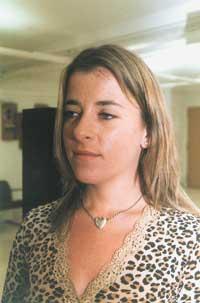
At the conference we started from the question you asked us. What can we do to improve science communication?
I think we can do many things. Introducing communication topics in the training of young scientists can be a good idea. How and how to carry out the conferences, how to present the topics, how to give scientific information to society, how to attract the attention of the public… On the other hand, to bring science closer to society should be promoted the public talks of scientists, aimed at non-experts. This is becoming more and more, for example in Madrid this type of events are becoming common. And it is that ordinary people have a lot of worries and desire to ask scientists… This would help a lot.
Therefore, scientists should be taught the ability to communicate.
Yes, because for scientists it is often very difficult to separate technical and scientific contents from their daily work from the real meaning of this work. I think that in order to understand the message of the work of scientists, many technical aspects can be left over, because otherwise the message may be incomprehensible.
If those who have to communicate are scientists, what role do we have for journalists?
The task is bilateral. Journalists have to ask scientists, you have the responsibility to ask them the meaning of the work of scientists and then you have to move them to society. For this you have to put yourself in the place of ordinary people, avoid as much as possible the technical part of the work of the scientist, since those who will receive your message have not been able to talk to the scientist.
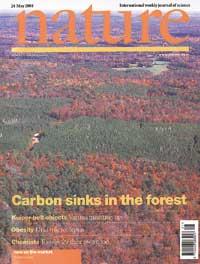
Let's go back to your lecture. They say that nature abandons 98% of its works. Are they never given a second chance?
Yes, sometimes yes. By refusing an article, the author is sometimes told that he is not yet fully accredited. This is why recommendations are often made to make changes and then bring back the work. On other occasions we reject very interesting articles, although very specific and treated in depth, since in these cases the topics are too concrete, more appropriate to go out in specialized journals. Because we believe that what is published in Nature has to be of general interest. Especially for this reason we leave aside so many works because it is difficult that they are of general interest and at the same time precise. In these cases, we recommend that you publish it differently.
In others, of course, when it is negative, it is negative.
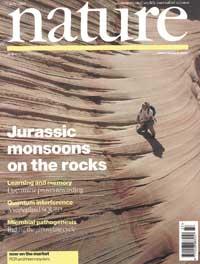
You have explained to us how much you reject the works. Tell us now the opposite way. What must be done to publish something of Nature?
Send it to us first. Everything we receive is sent to groups of editors, groups of editors formed by people from different scientific disciplines. The first assessment is made there. If it is considered to be publishable, it is sent to several experts for a deeper study. We have a wide network of experts worldwide, since the integration of the best of each country and field in our network is one of the priorities. If after analyzing the work the experts give themselves, go ahead! But the decision is unanimous.
In that process time will go. Perhaps too much for a weekly?
Normally yes, but when current demands it, when we have to publish faster than others, when information becomes career, we are able to accelerate the process.
There are 66.000 specimens of nature each week in 238 countries. Nature has an enormous impact and you recognize it. However, these figures do not seem too big to me.
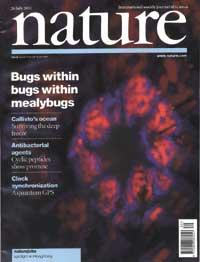
According to our data, each number is read by 10 scientists, so we are talking about 660,000 scientists who read us every week. If you take into account the gross amount will not be excessive, but you have to keep in mind that the audience is very specialized. And the same amount is not bad, it is also increasing. In this sense, we are very satisfied because although the magazine is online, the number of readers has not dropped.
From the point of view of importance, Nature is a reference for scientists. The journal itself was created by scientists, published by all scientists who have made history here…
On the other hand, there is another fact that makes clear the importance of our magazine. Our magazine is the source that most mentions the rest of the media when giving news.
And your news sources. Do you seek information or do scientists turn to you?
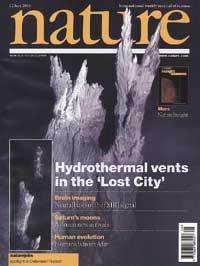
We do it both, but usually scientists come to us. Many times we get news, that some research group is investigating, etc. In these cases we go behind the news to see what they are doing, because our goal is to get the news more interesting before and better than the competitions.
Although widespread in many countries, Nature is published in English. Do you intend to publish it in other languages?
No. In the field of science and technology it is essential that everyone speaks in the same language, since in this way information can be exchanged in an agile and understandable way. In the world there are many research groups working together, and if they don't have a language that both parties understand it can be impossible.
Nature hijacks many of the news it sends to the other media. Why is it so important to talk about it?
If it breaks because it affects everyone, especially the information that people can receive, because from the summaries can increase the possibilities of spreading the wrong information. In addition, we try to always be the first to give important news. We have to work on it and that's why we have delegations in 13 countries.
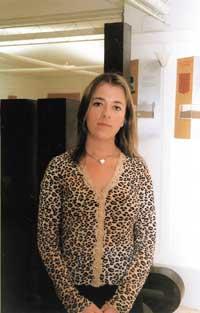
Information should be of general interest. Is society hungry for scientific and technological information?
Yes, more and more. At this moment, science and technology are an essential reference, because the future is based on these areas. In this sense, the growing interest of society in science and technology is evident. However, the role of our magazine is not to reach the majority of society, ours is to reach the mass media, which then reach the majority. We bridge the gap between research groups and the media at the national level; then they themselves work to spread the message in society. However, our responsibility is not limited to that, but also influences communication between those working in different scientific fields.
What news would you like?
Good question, but difficult to answer. Umm... it will be very nice the day when we know what we need to know about the human genome, and then the day on which technology will develop that can use all that knowledge, that is, the day on which all that knowledge is cured people.
Buletina
Bidali zure helbide elektronikoa eta jaso asteroko buletina zure sarrera-ontzian











